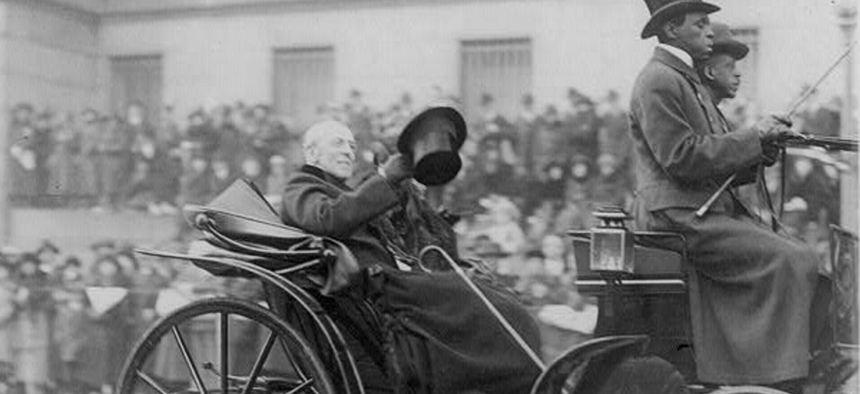
Woodrow Wilson on Armistice Day, 1921 Library of Congress
More on Woodrow Wilson’s Legacy of Segregating the Civil Service
The story of one dedicated federal employee whose career was destroyed.
Last week, I wrote about the troubled legacy of President Woodrow Wilson with regard to his effort to re-segregate the federal workforce. Today, the grandson of one of those directly affected weighs in with a real-world story of the impact of Wilson’s policies.
Writing in The New York Times, Gordon J. Davis, a partner at the law firm Venable, describes the experience of his grandfather, John Abraham Davis, who found genuine opportunity in working for government--and then saw it cruelly taken away.
Davis writes:
Even as the strictures of Jim Crow segregation began to harden in the South, Washington, and the federal Civil Service, offered African-Americans real opportunity for employment and advancement. Thousands passed the civil-service exam to gain coveted spots in government agencies and departments. In 1882, soon after graduating from high school, the young John Davis secured a job at the Government Printing Office.
Over a long career, he rose through the ranks from laborer to a position in midlevel management. He supervised an office in which many of his employees were white men. He had a farm in Virginia and a home in Washington. By 1908, he was earning the considerable salary — for an African-American — of $1,400 per year.
But only months after Woodrow Wilson was sworn in as president in 1913, my grandfather was demoted. He was shuttled from department to department in various menial jobs, and eventually became a messenger in the War Department, where he made only $720 a year.
It’s not just that Wilson was a racist and avowed segregationist, Davis notes. He actually reversed decades of progress in integrating the federal workforce and providing a path to advancement for African Americans.







